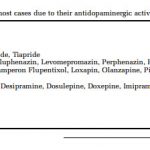Adrenal fatigue is a collection of signs and symptoms called a functional somatic syndrome where there are imbalances that cause the reserve present in the adrenal gland to be depleted below the necessary level. When evaluating healthy adults, some studies have found that 40 percent of people 60 years of age or older may present with what is called stage 3 adrenal deficiency and depression.Overall, adrenal fatigue is going to affect most people during the course of their lifetime. Signs and symptoms include feeling tired, run down, difficulty getting up, feeling depleted in the morning and feeling more energetic at the end of the day. Many people use caffeine as an antidote to help to deal with this problem.
The adrenal glands produce both cortisol and DHEA. Cortisol is going to be a catabolic hormone and DHEA is going to be an anabolic hormone. As we see as stressors increase, there is a decrease in the production of DHEA and an increase in the production of cortisol, so less anabolic “pump you up” and more catabolic “tear you down” hormone levels.
When stressors appear, the classic fight or flight response makes your cortisol levels to go up and then over time they come back down. But as we experience chronic stressors that go on for long periods of time, those cortisol levels stay elevated so they don’t drop back into normal range. This extended increase in cortisol levels eventually fatigues the adrenal glands, so they start producing less cortisol. With less morning time cortisol, our energy levels are impaired. Cortisol imbalances also affect how your thyroid gland works in ways that worsen fatigue symptoms
CLICK HERE TO BUY AN AFFORDABLE TESTOSTERONE TEST- NO DOCTOR VISIT
Recent Posts
How hackers at the Def Con conference tried to break AI chatbots : NPR
US Disrupts Russian Bots Spreading Propaganda on Twitter
The models have been downloaded 30 million times altogether, and Meta estimates that 7,000 derivatives have been...
Penile Implants- Interview with Dr. Robert Cornell in Houston
Q & A with Robert J. Cornell, M.D. – Prosthetic Urology and Men’s Health Specialist
Robert J. Cornell, MD specializes in the treatment of genitourinary...
Financial Assistance for Testosterone (injections,Androgel, Testim, Fortesta, Axiron)
I hope this information helps some of you who may be needing financial assistance
Patient Assistance Programs
Testosterone Cypionate:
https://www.needymeds.org/generic_lis...ne%20cypionate
testosterone cypionate (Depo Testosterone)
testosterone cypionate (Depo-Testosterone)
For HIV+ people:...
The Straight Dope on Cholesterol by Dr Peter Attia
The straight dope on cholesterol by Dr Peter Attia
#1 — What is cholesterol?
#2 — What is the relationship between the cholesterol we eat and...
Prolactin: Should Men with ED Be Tested ?
Prolactin is a hormone produced in the pituitary gland that is known for supporting lactation in women but also have many other functions on...














